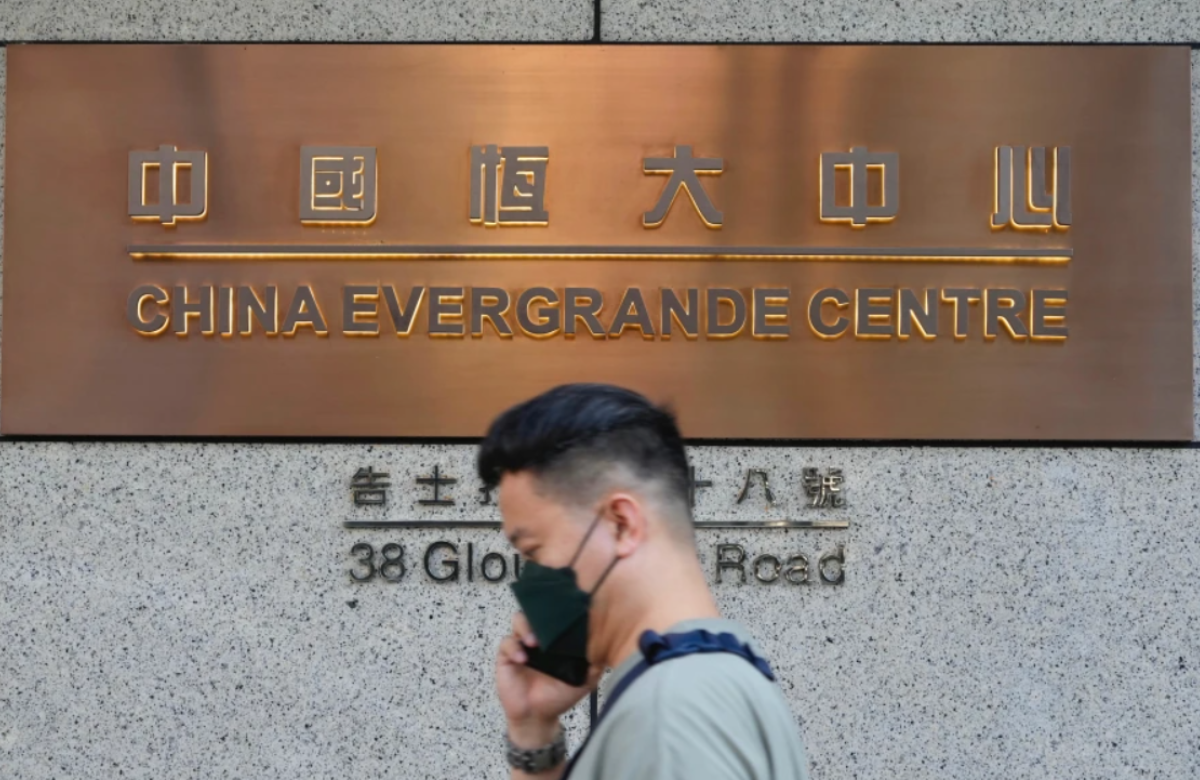China Evergrande, the heavily indebted real estate giant currently undergoing liquidation, announced on Tuesday that it will be removed from the Hong Kong Stock Exchange on August 25. This marks another major setback for China’s struggling property sector.
Once the world’s most indebted property developer with debts exceeding $300 billion owed to banks and bondholders, Evergrande has been under liquidation since a court order in January 2024. The court ruled the company failed to present a feasible plan to restructure its debt, intensifying concerns about China’s growing debt risks. Since the ruling, trading of Evergrande shares has been suspended.
According to Hong Kong’s stock exchange regulations, a company’s listing can be canceled if its securities have been suspended from trading for 18 consecutive months. On August 8, Evergrande received official notice that its listing would be canceled because trading had not resumed by July 28. The company confirmed that August 22 would be its final day of listing and stated it would not seek a review of the decision.
Evergrande warned shareholders and investors that after delisting, while share certificates will still be valid, the shares will no longer be tradable on the exchange.
The company is among many Chinese developers that defaulted following government crackdowns on excessive borrowing in the property market starting in 2020. With financing options drying up, these developers have been unable to meet their financial obligations to creditors and customers.
This regulatory crackdown has plunged China’s property sector into crisis, slowing growth in the world’s second-largest economy and shaking financial markets domestically and internationally. Once a key driver of China’s economic expansion, the sector continues to face a prolonged downturn, with home prices falling despite government support measures.
Hong Kong courts are currently handling liquidation cases against several Chinese property firms, including Country Garden, another major developer with a scheduled hearing in January. Smaller developer China South City Holdings was also ordered to liquidate recently.
Founded in the mid-1990s by Hui Ka Yan (also known as Xu Jiayin), Evergrande’s assets are primarily based in mainland China, accounting for over 90% of its holdings, according to the 2024 court ruling. The company was listed in Hong Kong in 2009 under the name Evergrande Real Estate Group and halted trading on January 29, 2024, when its share price stood at 0.16 Hong Kong dollars (approximately $0.02).
Liquidators reported receiving debt claims totaling $45 billion as of July 31, far exceeding the roughly $27.5 billion disclosed in late 2022. This figure remains preliminary.
The liquidators have taken control of more than 100 companies within the Evergrande group and other entities under their management, collectively valued at about $3.5 billion as of January 29, 2024. However, estimates on how much value can ultimately be recovered from these assets are still uncertain.
To date, approximately $255 million worth of assets have been sold, though liquidators described this as modest. Most of these proceeds came from subsidiaries’ assets, which, due to complex ownership arrangements, may not all be available to Evergrande itself.
While the liquidators believe a comprehensive restructuring is unlikely, they remain open to any credible opportunities that might arise.
Adding to the company’s challenges, founder Hui was detained in China in September 2023 on suspicion of criminal activities.
In 2024, the China Securities Regulatory Commission fined Evergrande’s subsidiary Hengda Real Estate Group about 4.2 billion yuan (approximately $584 million) for violations including falsifying financial records. Hui was personally fined 47 million yuan ($6.5 million) and banned for life from China’s securities markets, alongside penalties for several other executives.
In September 2024, Chinese authorities also banned PwC from auditing for six months and imposed a fine of over 400 million yuan ($56.4 million) for its role in auditing Evergrande.
Also Read:
U.S. to Receive 15% of Nvidia and AMD Chip Revenues from China in Unprecedented Deal
China’s Exports and Imports Rise in July Following Pause in Trump’s Tariffs














